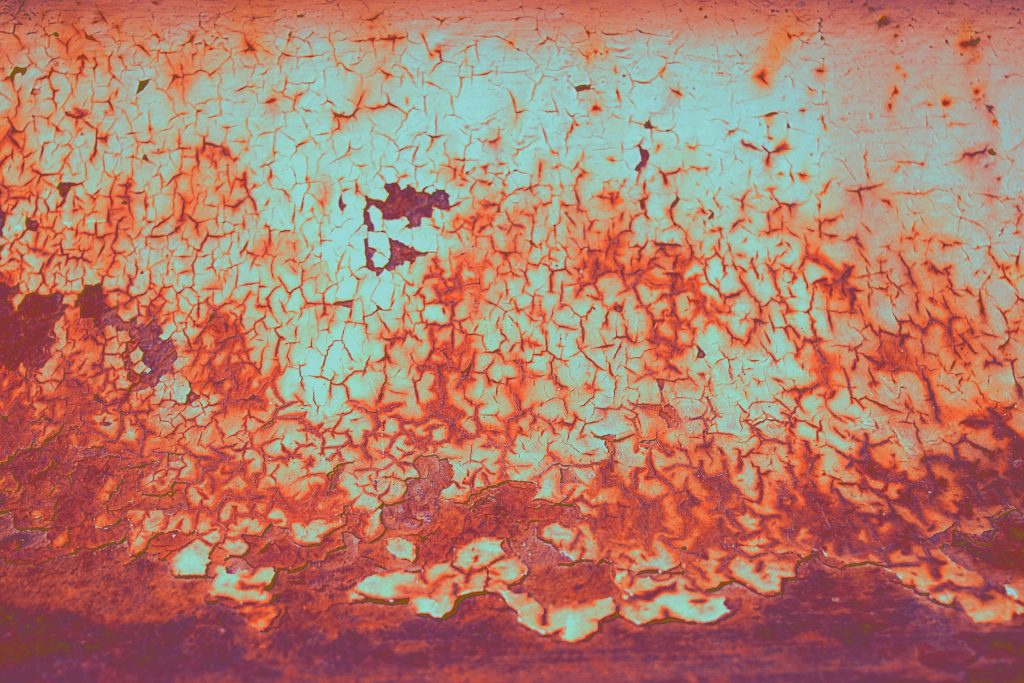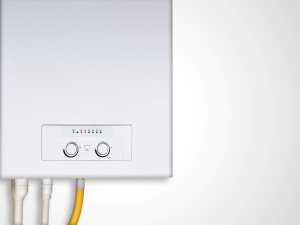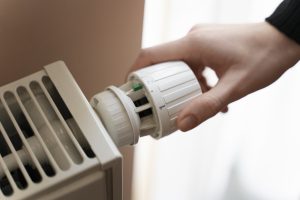If you’ve noticed there’s some rust buildup on your home’s water heater, you may be wondering what it means. Is there unknown corrosion that you didn’t know about? The answer to that is likely a yes.
But what exactly causes water heater corrosion?
Scientifically, corrosion occurs when metal is gradually destroyed via chemical or electrochemical reactions. That said, when metal reacts with the oxygen in water, it causes rust, and this rust then eats away at the metal until it corrodes.
In this article, we’ll discuss the most common causes of corrosion in water heaters and how to prevent it.
Signs of Water Heater Corrosion
There are two main ways you can tell your water heater is experiencing some level of corrosion. The first sign is discolored water in the tank. If you’ve noticed the water has a red, orange, or brown tinge, that’s likely due to rust combining with the water.
Another indicator of water heater corrosion is a leaky water heater. When metal rusts and begins to corrode, it loses integrity and becomes brittle. As metal pieces break away, the water from your heater can escape and cause issues on both the exterior and interior. If you notice a leak in your water heater, you’ll need to replace the entire unit.
While you can certainly DIY a water heater installation, hiring a professional will ensure the job is done correctly.
Issues With the Sacrificial Anode
One of the main causes of water heater corrosion comes from a deteriorating sacrificial anode. The sacrificial anode is an easily corrodable piece of metal that sits inside the water heater. Rather than the oxygen from the water rusting the heater walls, it attaches itself to the anode instead. You can easily diagnose this issue by an indicator of rust or corrosion on top of the water heater.
Sacrificial anodes can be made from one of three different materials: magnesium, aluminum, or zinc. You may also see sacrificial anodes, commonly referred to as galvanic anodes. These anodes need to be changed periodically to avoid corrosion in your water heater.
Sacrificial Anode Maintenance
It’s imperative you check your water heater’s sacrificial anode at least once every three to five years, depending on your water quality. Regularly checking the sacrificial anode helps ensure there aren’t any leaks, improves your water quality, and also reduces the likelihood of wear and tear. In turn, this will save you money in the long run.
If, during a check, you notice it’s time to replace the anode rod, here’s what to do:
- Shut off the water and power. This is important before getting started to avoid a huge mess or heat injury. If your gas line has an option for Vacation Mode, you can use this setting to avoid having to relight the pilot after.
- Find the anode rod. The rod will always be located at the top of the unit, and sometimes, it will be connected directly to the hot water outlet line. If you aren’t sure where the rod is, you can consult with the unit manual.
- Drain some of the water. You should only drain around 10% of the water. This step helps release some of the extra weight that holds the anode rod into place.
- Remove the old rod. To do this, you’ll need to use a boxed end wrench or a socket wrench.
- Install the new rod. To install, turn the new rod clockwise, by hand, until you can’t turn it anymore. After that, use a socket wrench to give it another half turn.
- Turn the water and power back on. After doing this, make sure to keep an eye on your water heater to ensure everything is working correctly.
For homeowners who aren’t comfortable with performing this type of maintenance, you can call an HVAC service provider and a professional can get the job done.
Standing Water in the Basement
Another common cause of water heater corrosion comes from standing water. If your water heater is situated in your basement, it becomes more susceptible to flooding and damage from standing water as a result.
When metal is exposed to water for a prolonged period of time, the metal oxidizes and turns to rust. That rust then leads to corrosion on the water heater connections. It can also lead to corrosion on the water heater pipes. Once the rust has set in on the exterior of the heater, it can’t be remedied and you’ll need to replace the entire unit.
Corrosive Fumes
You should never use corrosive cleaning agents on or near your water heater. The fumes from these cleaners can be absorbed into the tank and result in slow-burning corrosion over time. If you notice dust or dirt on your water heater, you can just use a damp washcloth to gently wipe down the area.
Tank Leaks
If the corrosion has spread to the walls of your water heater, it can lead to metal breakage and leaking. Because corrosion is a chemical reaction, you can’t reverse the damage done. As a result, a corroded water heater is deemed unusable and must be replaced.
External Part Leaks
Along with a leak from the heater walls, your water heater may also experience leaks from the washers or other fittings that connect it to your waterline. If any washers or rubber fittings are loose, water can escape. If that water and leak are left unchecked for a prolonged period of time, it can cause serious damage to the entire unit.
Worn Out Glass Lining
The interior of a water heater is lined with a layer of glass. Over time, that glass will wear thin, leaving the interior heater wall vulnerable to rust and corrosion.
Faulty Temperature Pressure-Relief Valve
The temperature pressure-relief valve serves to release water and bring down the pressure inside of the water heater. If the tank is exposed to outside air, that oxygen can cause rust when it mixes with the moisture inside.
Parting Thoughts
Water heater corrosion can arise from a variety of causes. Whether you have a bad sacrificial anode or you’ve recently experienced basement flooding, your water heater has been exposed to possible corrosion as a result.
The best way to prevent water heater corrosion is to check your sacrificial anode every few years and keep the space with your water heater clean and dry at all times.




